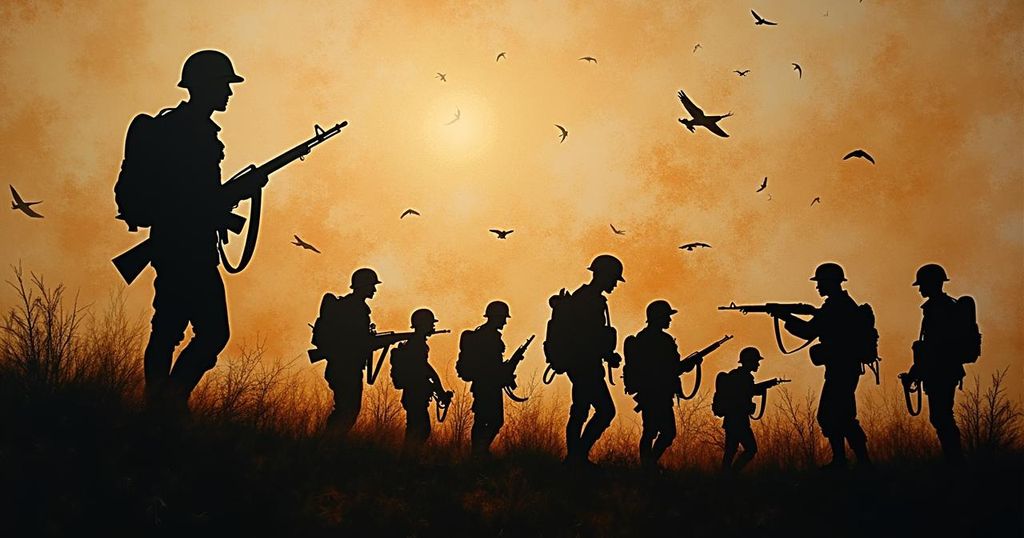Preserving Digital Witness: The Role of Social Media in Documenting the War in Gaza
This article examines the critical impact of social media on documenting warfare, focusing particularly on the conflict in Gaza. It discusses the challenges of preserving digital records, the emergence of grassroots archiving initiatives, and the need for rigorous methodologies to validate open-source information to support accountability efforts for war crimes. The role of organizations like Mnemonic and Airwars in safeguarding this material reflects both the urgency and complexity of maintaining historical narratives amid evolving digital landscapes and ongoing conflicts.
The impact of social media during conflict, particularly in the war in Gaza, has radically transformed public perception of warfare. Platforms such as X (formerly Twitter), Telegram, Instagram, and Facebook have shifted from mere communication tools to critical archives of historical records, allowing for verification of events and potential documentation of war crimes. However, concerns regarding the preservation of this information abound due to opaque archiving policies from major social media companies, who are often perceived as biased towards certain narratives, as highlighted by organizations like 7amleh. Smaller organizations have taken it upon themselves to safeguard these digital documents, launching their own archiving initiatives in response to the risk of losing vital records. The Syrian Archive, founded by activist Hadi Al Khatib, stands as a leading example, maintaining over 15 million records of conflict-related violence since its inception in 2014. The foundation of such efforts lies in recognizing the evidentiary potential of social media posts, which, if captured and archived correctly, can serve to substantiate truth claims about human rights violations. In the current context of Gaza, with limited press freedom and restricted access for international accountability mechanisms, open-source information has become paramount for understanding ongoing conflicts. Organizations like Mnemonic have implemented rigorous archiving methodologies that include forensic collecting and metadata verification to ensure authenticity and integrity, contributing to the legal viability of open-source evidence. Meanwhile, entities like Airwars play a significant role in documenting air strikes and civilian casualties, demonstrating the efficacy of leveraging social media in refining military data and offering transparency in conflict reporting. Interesting parallels exist between the current situation in Gaza and historical conflicts, as both reflect the adaptability of civil reporting to technological advancements in information dissemination. Lastly, while social media visibility is critical for documenting and disseminating information, it presents challenges. Issues of information control, disinformation campaigns, and the potential for suppression by government intervention or the platforms themselves compromise the integrity of data sustainability. Despite these challenges, grassroots efforts to curate reliable, translatable historical narratives from these platforms illustrate the evolving landscape of conflict documentation and the imperative need for sustained archiving efforts to secure this valuable information for future accountability and research.
The article discusses the transformative role of social media in documenting conflicts, specifically focusing on the war in Gaza. It emphasizes the challenges faced in preserving digital content and the efforts of smaller organizations in archiving vital records that may contribute to accountability for war crimes. The need for rigorous archiving methods to authenticate social media posts for legal and historical use is explored as well as the pervasive challenges of disinformation and information suppression in these contexts. Ultimately, the topic underscores the significance of grassroots documentation in an increasingly digital world, where traditional media models have evolved to include citizen-driven reporting.
In conclusion, the intersection of social media and warfare has redefined how conflicts are documented and perceived. While the immediacy of information sharing offers unprecedented access to events on the ground, it is accompanied by considerable challenges regarding the preservation and authenticity of this information. The proactive measures undertaken by specialized organizations highlight the importance of meticulous archiving practices in maintaining a reliable historical record that informs justice and accountability efforts. The ongoing war in Gaza serves as a poignant reminder of both the potential and the peril of digital documentation in the contemporary era, stressing the need for robust frameworks to support the verification and sustainability of open-source information.
Original Source: newlinesmag.com




Post Comment